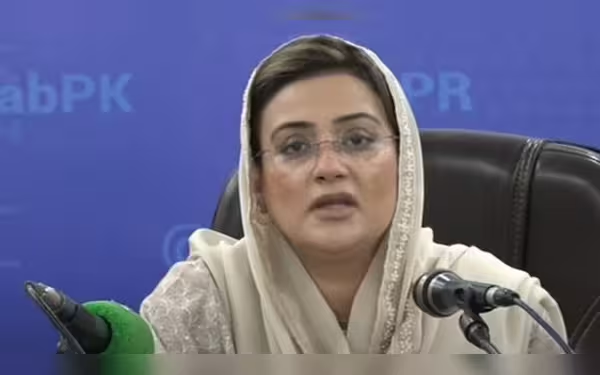Thursday, July 4, 2024 06:00 PM
Punjab Government Postpones Defamation Law Amid Criticism
- Chief Minister Maryam Nawaz delays approval following journalist concerns
- Proposed law faces opposition for potential threat to press freedom
- Defamation legislation includes structured legal process and social media coverage
 Image Credits: thenews
Image Credits: thenewsThe Punjab government, led by Chief Minister Maryam Nawaz, postpones the approval of the defamation law due to concerns raised by journalist organizations. The proposed legislation aims to balance accountability for baseless statements with the protection of free speech and press freedom.
The Punjab government, under the leadership of Chief Minister Maryam Nawaz, has decided to postpone the approval of the proposed defamation law. This decision comes after concerns raised by various journalist organizations regarding the potential impact of the legislation on press freedom and democratic values.
Minister for Information, Azma Bokhari, announced the delay and encouraged journalist groups to voice their objections by the upcoming Sunday. The government is willing to engage in discussions with all concerned parties and is accepting written feedback on specific provisions of the law until the end of the week.
Opposition and Criticism
The anti-defamation legislation introduced by Chief Minister Maryam Nawaz's administration in the Punjab Assembly has faced criticism from different sectors, particularly journalists. President of the Lahore Press Club, Arshad Ansari, has expressed concerns that the law could be misused to stifle dissenting opinions and pose a threat to the principles of democracy. Ansari has called for unity among journalist bodies to challenge the law and has urged the government to uphold democratic values and press freedom.
Key Provisions of the Proposed Law
The defamation law aims to hold individuals accountable for making baseless statements by providing a structured legal process. Accused parties will have the opportunity to defend themselves within a specified timeframe, with cases expected to be resolved within 180 days. The legislation also extends to defamation on social media platforms, with penalties of up to Rs3 million for proven cases. Accused individuals will retain the right to dispute the charges and present their defense.
Furthermore, the law establishes a designated tribunal to handle defamation cases, ensuring an efficient legal process. The tribunal judge will focus on resolving disputes promptly, with an emphasis on civil proceedings that do not involve police intervention, arrests, or imprisonment related to defamation allegations.
Conclusion
The decision to delay the approval of the defamation law reflects the Punjab government's willingness to address concerns raised by journalist organizations and other stakeholders. By inviting feedback and engaging in discussions, the government aims to ensure that the legislation strikes a balance between protecting individuals from baseless accusations and upholding the principles of free speech and press freedom.













